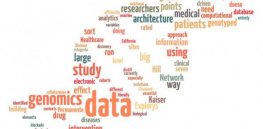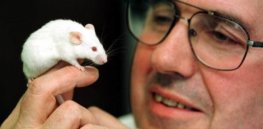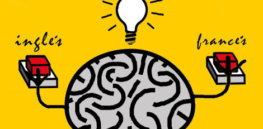Brain/Neuroscience

Genetic information: How much to share, how much to keep private in age of Big Data
Genetics and computational biology are evolving so quickly that it’s impossible to predict the medical answers that they’ll reveal in ...
Seeing dragons? Woman’s strange condition that baffled neurologists
Here’s the medical case report in The Lancet: Prosopometamorphopsia and facial hallucinations from a team of researchers including the famous Oliver Sacks ...

Slowing the aging process: How the Mediterranean diet preserves your chromosomal telomeres
People who stick closely to a Mediterranean diet were found to have longer telomeres—a biomarker of aging found at the ...

Tired? Biological clock out of whack? Blame genes and epigenetics
We spend a third of our life asleep, so getting it right is important. Researchers probing our daily biological clock—our ...
Dangers of exaggerating premature scientific findings
In 2011, Petroc Sumner of Cardiff University and his colleagues published a brain imaging study with a provocative result: Healthy men ...

DNA of Niemann-Pick disease victims might offer clues in finding Ebola cure
Niemann-Pick is a debilitating disease that retards movement and development of an infants ability to think and reason, as if ...
Researchers challenge prominent theory on link between psychiatric disorders and genes
An important new study could undermine the concept of ‘endophenotypes’ – and thus derail one of the most promising lines ...

Warrior genes? Genetic screens for “evil” traits likely to remain science fiction, at least for now
The idea that people who are might commit a crime can be identified in advance of any wrong doing has ...

Neuroscience: What’s going on in your brain when you read Harry Potter?
When reading about Harry Potter's adventures fighting Lord Voldemort or flying around the Quidditch field on his broomstick, we can ...
Mice with human brain cells smarter than peers
What would Stuart Little make of it? Mice have been created whose brains are half human. As a result, the ...

Of mice and men: Comparing genetics raises new questions about reliability of rodent studies
The laboratory mouse really lies at the foundation of numerous life science studies, but is it an appropriate model in ...

Teens’ brains: Social processing fails when they hear mom’s criticism
We all know that teen-parent relations can be a tricky business. Now neuroscientists from several leading US universities think they’ve ...
Petri dish spinal cord grown from stem cells
Most efforts to grow tissues and organs rely on biodegradable scaffolds. When ‘seeded’ with a patient’s stem cells, these scaffolds ...
Your dog’s body language shows whether he hears your command
If you are worried that your dog is not paying attention to what you are saying simply look at where ...
Electrotherapy appears to have benefits, but how does it affect the brain?
Stimulating the brain with electricity improves working memory, mental maths,focused attention, creativity and could help treat depression. You can even ...
Genome of worm removed from man’s brain mapped
For many years, a Chinese man in the U.K. experienced a range of debilitating neurological symptoms with no understood origin--including ...
Applying neuroscience to poverty may do more harm than good
The idea that poverty can change the brain has gotten significant attention recently, and not just from those lay readers ...

Translating language in real time relies on interconnectedness of brain’s networks
As the delegate spoke, real-time interpreter Marisa Pinkney had to make sense of a message composed in one language while ...

Depression researchers look ahead for ‘golden age’ of research by drawing on cancer’s track record
Advances in cancer diagnosis and treatment could yield valuable insights for depression researchers, who struggle to understand the role of ...
Genome rich tapeworm makes way into man’s brain
A tapeworm that usually infects dogs, frogs and cats has made its home inside a man's brain. Sequencing its genome ...
Sexual orientation can’t be explained by genetics alone
Just recently, the largest twin study to date examining genes’ influence on homosexuality was published in the journal Psychological Medicine ...
Successful hand transplant relies on brain’s ability to rewire itself
Recovery of feeling can gradually improve for years after a hand transplant, suggests a small study that points to changes ...

Why does your cat love you…sort of? DNA unravels feline mysteries
Domestic cats have a reputation as being "marginally tame and lacking in the servile sycophantic affect of the dog." Added ...
Virus found in algae might cause cognitive deficits in humans
Many well-known human viruses, including poliovirus, rabies virus, West Nile virus, can infect cells of the nervous system, leading to ...
Exposure to mother’s immune response in utero may lead to neurological problems
Monkeys exposed in utero to their mother’s immune response to a mock infection show inflammation in their brains four years later. Researchers ...
Neuroscience research has long way to go
The human brain contains roughly 86 billion neurons and trillions, perhaps hundreds of trillions, of intricate interconnections among those neurons ...
Humans struggle to identify odors despite acute sense of smell
In most mammals, olfaction is dominant. Smell uses a large portion of their brains, and aroma receptors are encoded by ...

